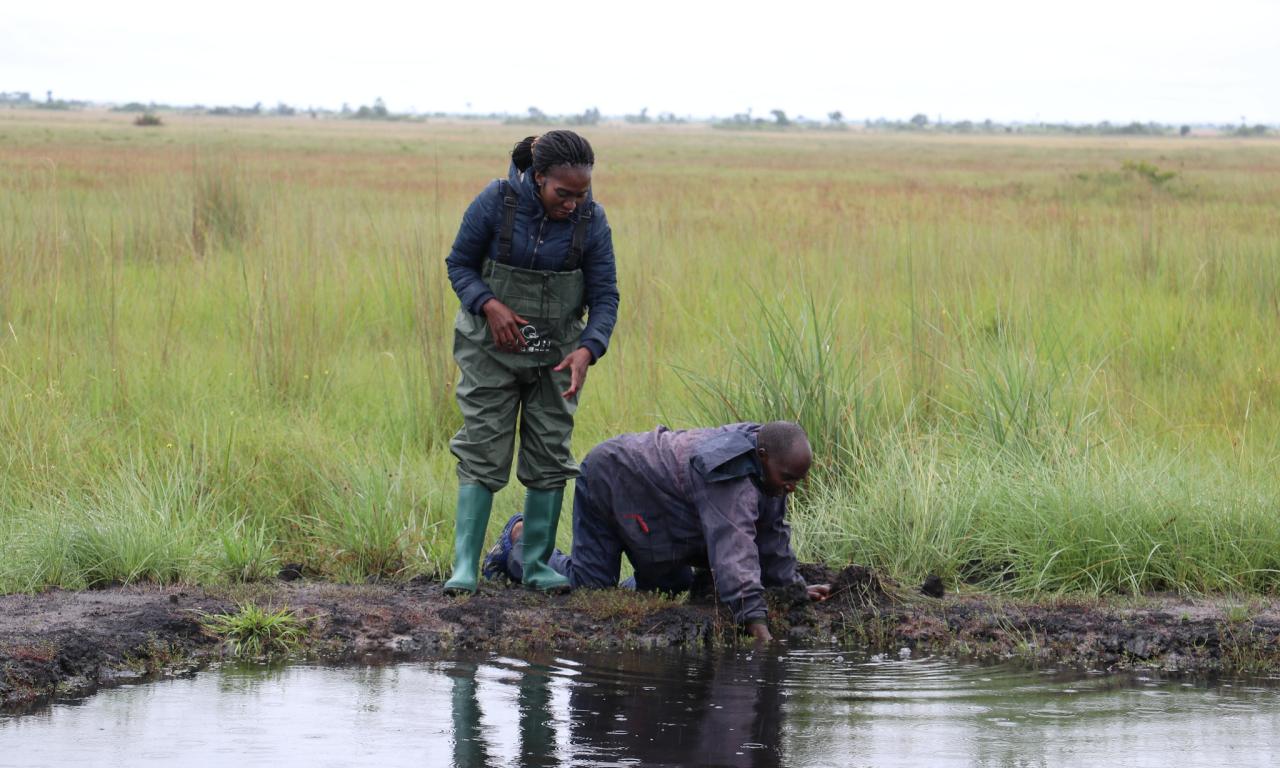
The AICCRA project will focus on improving climate information access to African farmers to allow better and more timely responses to climate variability. By deploying information services and climate-smart technologies, the impacts of climate change on food security can be mitigated.
While climate change threatens food systems globally, African agriculture is particularly susceptible to its impacts. A new CGIAR project seeks to offer a solution, building resilience into African food systems and buffering them from the worst impacts of climate change.
Funded by World Bank, the Accelerating Impacts of CGIAR Climate Change Research for Africa (AICCRA) project is intended to strengthen the resilience of agriculture and aquaculture in three of sub-Saharan Africa’s agroecological zones.
Persistent droughts demand increased policy attention and focus, as they threaten the continent’s progress on food and nutrition security. While aquaculture is often posed as a resilient way to produce a reliable supply of nutritious food even with climate variability, with closed-loop systems allowing farmers to control conditions and adapt to climate variability, information access is underpinning the efficacy.
The overarching goal of the project is thus developing and deploying climate-smart agriculture technologies and Climate Information Systems (CIS) as a way to provide the latest information on climate variability to farmers, whether they’re producing crops or aquatic foods.
These services provide technologies and real-time information to aid producers in adapting to and mitigating the most severe impacts of climate change. In the case of aquaculture, resources like a fish-farming activity calendar that identifies seasons of high temperature, heavy rainfall and dry spell events can support farmers in scheduling their operations around climate variability — so farmers can know when is the best time for pond preparation and maintenance, fingerling stocking and harvesting.
“By offering CIS services, farmers will be able to better anticipate climate-related events and take preventative actions. Better access to climate advisories will also lead to more effective response measures, helping fishing communities to better safeguard their livelihoods and food and nutrition security,” said Keagan Kakwasha, WorldFish’s monitoring, evaluation and learning specialist in Zambia.
New technologies to aid adaptation
In Zambia, the project first sought to document fish-farmers' awareness of the relationships between climate variability and aquatic food production systems. Following surveys of fish farmers, the project is now working to deploy CIS to improve information access, whether through mobile applications or other communication services where farmers can connect directly with experts in the field.
Some climate-smart technologies that will also be deployed as part of the project include: integrated aquaculture/agriculture systems; sex-reversed fish fingerlings; and better formulated fish feeds.
Integrated aquaculture/agriculture systems are where farmers integrate fish systems with small livestock species like goats. Animal manure can then be used to fertilize fish ponds and reduce the volume of fish feed needed. By reducing fish feed usage, farmers also decrease the use of raw materials that can otherwise be directly consumed by humans — reducing competition over food sources.
Besides reducing raw materials, the project will also focus on boosting production, with sex-reversed fingerlings being a primary mechanism. This involves using a variety of hormonal or genetic approaches to produce entirely male fish stock in order to prevent immature juveniles from breeding and producing stunted or genetically inferior stock.
It’s also integral to better develop supply chains in order to link farmers to small-medium sized business enterprises (SMEs) to source feed and fish seed, meaning they have a reliable supply of young genetically fit fish to stock their ponds.
Such technologies, investments and information access will go a long way in ensuring the success of African fish farmers during times of shocks.
“Innovations in aquaculture must ultimately address these three pillars to ensure their long-term sustainability: climate resilience, mitigation and adaptation. The AICCRA project will be instrumental in achieving these goals,” said Kakwasha.
In Mali, the AICCRA project aims to strengthen systemic capacity to enhance the flow of climate-relevant information, decision-making tools and technologies from the producers of such knowledge to its consumers.
“Building on the best rice-fish practices developed in Bangladesh, Cambodia and Myanmar, WorldFish will support AfricaRice in the validation and dissemination of the rice-fish integrations systems in Mali,” shared Rodrigue Yossa, WorldFish’s fish feeds and nutrition scientist.
“These integrated rice-fish systems will not only contribute to mitigating the effect of climate change, but will also represent an adaptation technique that also generates diverse food products such as rice and fish in the same area, therefore contributing to a balanced diet and generating more income for rural farmers,” added Yossa.
